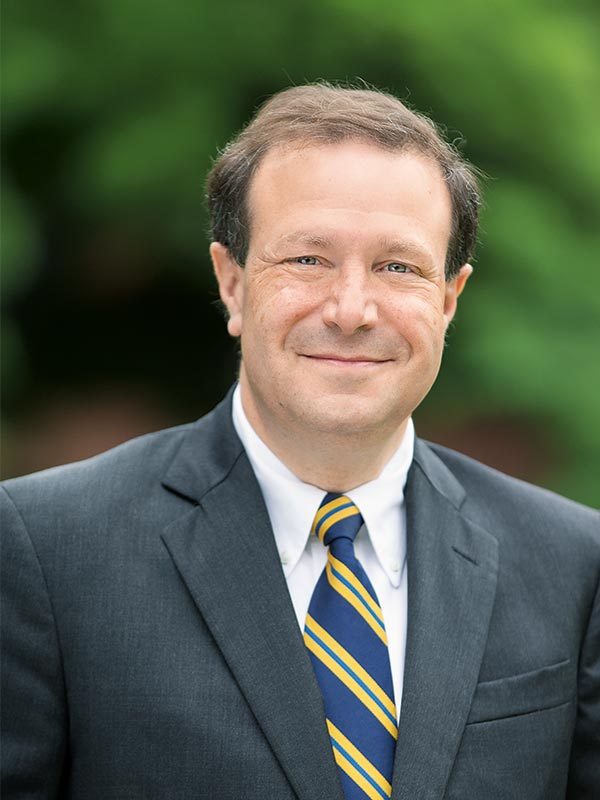
At Opening Convocation this year, I spoke about what I regard as one of the most pressing challenges facing American higher education: the diminishment of thoughtful, respectful, honest, and productive discourse about divisive political, economic, and social issues both in broader society and in academic communities.
This country—and, indeed, the world—faces yawning economic, political, and cultural gulfs that arise from stagnating incomes, inequality of social capital and personal opportunity, entrenched prejudice of many kinds, environmental degradation, and other deep-rooted problems. We face heightened fears over the pace of change, the disruption it engenders, and our ability to secure a bright future for the next generation. These gulfs and fears are exacerbated by mass media that enable us to cocoon ourselves among those holding the same opinions, and by social media that enable us to fire off ill-considered, sometimes obtuse—and even intentionally insulting—comments without looking the recipient in the face.
We desperately need citizens and leaders who are used to encountering, embracing, and working through and across difference, who are eager to ameliorate entrenched fears, who are alert to their own misperceptions and seek to understand and respect opposing views, and who have learned—and can teach others—how to respond productively to painful remarks or wrongful acts. We need citizens and leaders who are supremely skilled at looking for and strengthening the common human threads that can mitigate or transcend difference.
These are daunting requirements. But I believe a key part of the solution lies close at hand. Carleton consciously brought individuals from diverse backgrounds together in idyllic physical settings that are conducive to reflection and deliberation. Liberal arts colleges like Carleton are small enough that students naturally encounter very different “others” every day. This give us an extraordinary opportunity—indeed, I would argue, an extraordinary responsibility—to produce graduates who are supremely skilled at and who embrace the importance of talking and learning and working across divides.
We must deliberately inculcate among our students the skills of listening (trying hard and seriously to understand and respect where others are coming from and what they have to say), empathy, vulnerability, tolerance and forgiveness, and mutual trust. I anticipate that we shall need intentional, regular, sustained, inclusive dialogues, led by skillful facilitators, in which students practice talking openly about both their backgrounds and their perceptions of on-campus and off-campus events. Participants must honestly believe that they can be candid and exposed in these exchanges without being ostracized or judged by their fellows. Make no mistake: these will certainly be awkward and hard discussions at times, but we should not shy away from them.
We all have roles to play. College presidents must forthrightly discuss why it’s essential for our schools to focus on meeting this global need, as I am doing now. Faculty members—the longest-term guardians of institutional values—need to model how to respect and engage with difference. Alumni can share with us the skills they gained as undergraduates and still value, as well as the skills they wish they had acquired that have proven essential later in life. And we must all listen to students as they explain the particular hurdles they encounter as members of their respective communities.
Carleton needs housing, dining, and other extracurricular and social arrangements that compel regular contact with very different others. And in these settings where cocurricular learning is meant to occur, students themselves will need to take the lead in holding difficult, sometimes blunt one-on-one conversations that may begin with (or quickly elicit) expressions of raw feelings but that can ultimately engender increased respect and friendship. In such a setting, as one walks to and attends class, eats in the dining hall, practices on the playing fields, or participates in student organization meetings, it is essentially impossible to ignore the good—or ill—consequences of one’s words or actions. Powerful learning can ensue.
If we are successful, we will usher in a vibrant era in the lives and prospects of institutions like Carleton and its peers and help transform a divisive political and cultural moment into a time of deeper and lasting understanding—an appropriately bold and noble aspiration for the start of a new academic year.